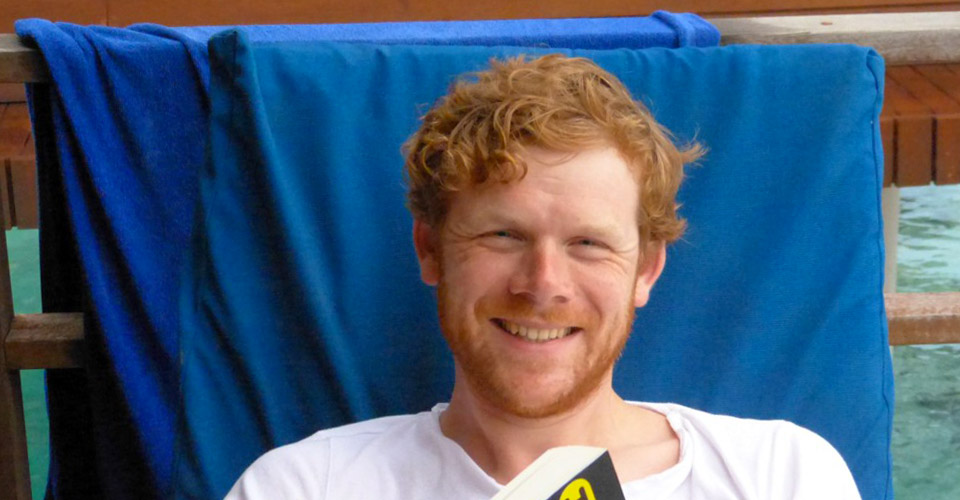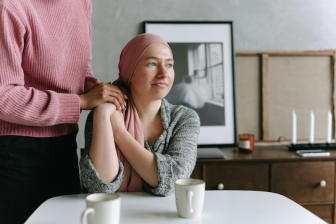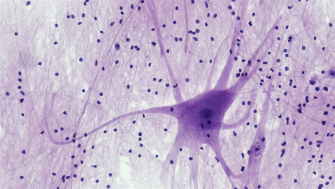If you have ALS
Last updated: 10 March 2021
You can legally access new medicines, even if they are not approved in your country.
Learn how
If you are experiencing ALS too, this page was written specifically for you.
When I heard I had ALS, I looked around on the web for stories of other patients. I didn’t look too long or too deep. Knowing what is ahead of you is not necessarily inspiring, but at the same time, I saw value in being prepared. I got quite a bit of motivation, perspective and understanding from talking to fellow patients and reading other blogs. I also know several people around me found comfort and wisdom in blogs of other patients.
What I attempt to do here is summarise what I think is useful to know if you find yourself in the horrible position of suddenly being someone with ALS. I try to keep it chronological, as in, the more confrontational stuff comes later. At the end, there is a section on practicalities. I realise that far as ALS patients go, I am one of the lucky ones. In my country, The Netherlands, mandatory healthcare insurance covers every imaginable medical bill, and the local municipality pays for most of the rest. Research, care, and public awareness are among the best in the world here. On top of that, my employer made sure I have no money worries, and we have a huge social support network. I believe my advice is universal, but I realise that I talk from a very luxurious viewpoint. Basically, YMMV. End of disclaimer.
So. First point. No one can tell you what to do. If there was ever an event in your life that puts you in charge, this is it. Almost nobody can imagine what it is like to know what you know. Of course it helps to listen what your loved ones want; they have been hit with the paint bomb too, but ultimately, you are the one who makes the decisions. You may already know this, but I had to remind myself repeatedly. It is somewhat of a paradox; you do not suffer alone, imagine what your parents have to go through… and yet, the responsibility for how you now live your life lies solely with you.
Then. Time is now your most precious resource. Time and attention are the biggest things that the diagnosis robs you of. My grandparents lived actively into their 80’s or 90’s, so I always assumed that I had eons of time. Suddenly the last fifty years of my life were gone. Always wanted to learn folk dancing or visit Papua New Guinea? Now is the time. Really, now. Stop reading and go for it. Don’t waste time on things you dislike. If you like working, work. If you like being at home, be at home. Etc. You get the picture. Waking up is highly recommended. A friend of ours summarised it like this: “Find the things you love. Find the people you love. Do what you love with the people you love.”
Nobody knows how much time you have. A lot is misunderstood about ALS. For instance, no one can predict the progression of your disease. Studies are always performed with groups of patients. You are not a group. On average, people with ALS live x years and y months. Great. On average, you would not have gotten ALS, yet you did. And there is absolutely no one that can predict if you will get hit by a bus tomorrow or live another fifty years with the disease, just like Stephen Hawking.
Get the right care. Find a neurologist who specialises in ALS and check all your assumptions with him or her. The average neurologist sees one case of ALS per ten years. A specialised neurologist could see one every week. That experience goes a long way. If you were your neurologist’s first case in ten years, it might be useful to get a double or triple check. Then, get a multidisciplinary care team. Research shows that several disciplines (neurology, rehabilitation, speech, diet, ergo, psychological, physical therapy, etc) working together for you can be as beneficial as riluzole.
Take a break. You may think your body is ill, but the initial impact is mostly mental. One could argue that the whole disease takes more of a mental toll than a physical one. Regardless, wrapping your head around the news is no easy feat. I spent the first six weeks running around like my hair was on fire. I felt the urgency to live, but if my wife had not dragged me off to Tarifa for some kitesurfing, I would have been both divorced and dead of a heart attack.
Mobilise support. Don’t indulge in foolish pride. You got struck by an extreme spot of bad luck. It’s really OK to let others in. Don’t rob people of their chance to feel useful in the face of disaster. In fact, it is their disease, too, and they also need a way to deal with it. Make sure your supporters are a network, as they may require support from each other as well.
Be blunt. Use your disease as a crowbar. You no longer have the luxury of waiting. I pried open doors, procedures, and bureaucracy, and if asking nicely didn’t help I hit people over the head with my crowbar of truth. No, I can’t wait for three weeks to see you, because by then I might no longer be able to walk. Whatever you are trying to get done, just be open and realistic about why time is different for you than most.
Manage your hope. Most are convinced there is none. That is not true, because I have hope, so there. ALS will be cured. The chance that it happens in your time exists. A crazy professor might stumble across the solution tomorrow – or better, yesterday. Hope keeps you going, it is the spark that ignites your passion. Vitamin D might just cure you, or maybe stem cells. Who knows? Doctors know the odds, so don’t expect encouragement from them. Being an ALS patient by definition puts you in the rare odds category, so… who knows? Also, your object of hope might shift. I know several patients who hope to survive ALS. I believe their hope is realistic, and if you knew them, so would you. I progressed too fast to keep hoping for survival, so my hope shifted. I hope to the point of knowing that my daughter will have a beautiful life.
Pick a fight. There is bound to be at least a little bit of anger inside of you. Even a Buddhist hippie flowerpower treehugging new age nun would swear and kick her pet if she had to deal with ALS. It helps to pick a few targets and let your anger fuel your righteous smiting of said targets. There is satisfaction and use and perhaps purpose in raising money or paving a path for fellow patients or kick the crap out of a boxing bag while you still can. There are more mature ways of dealing with your anger, perhaps you are free from it, but for me, it helped to embrace my anger and put it to use. Still, I had more anger than I could channel, and some of it bled into my relationships and my marriage. That is my biggest regret.
Love / hate your assistive devices. When you get the diagnosis, wheelchairs and breathing pumps are not happy topics to think about. I’ll call everything from a crutch to a tracheotomy a “thing” in this paragraph. Every single thing that you have to use is an undeniable reminder that things will not improve. As such, you want to push those things away as far as possible. Until, suddenly, you realise that they massively improve your life. Then you can’t wait to get your hands on the thing. Yet it will take weeks or months to get it. I spent three months to get a chair I could then use for a month until the disease overtook me again. Bottom line: it is easy to get behind the facts. Don’t spend the rest of your life playing catch-up. Also, the amount of things available is huge. Each thing can bring you independence and joy, but each thing is also a confrontation. If you can, delegate this.
Invest in your caretakers. This one is obvious. Whether the people taking care of you are professionals or loved ones, be as good as you can to them and be as clear as you can afford. You will come to rely and be dependent on them. Communication may get more difficult over time, so give them your attention. You may want to ignore them later on, as I do because I am literally never alone. A good foundation early on makes it easier to cope with the strain of having someone do everything for you. Don’t be afraid to give feedback. I find it difficult to whine about the exact way to wipe my spit away, but unless I do, I will have drool all over my face.
Talk to fellow patients. Not many people know what it is like. Fellow patients do. Your national ALS association (who love to know you, so sign up) can put you in touch with patients like or unlike you. Their experience and empathy is priceless. For instance, I thought life would dwindle as the disease progressed. Then I met Eric Valor. I learned about the companies he started, the classes he took, the drug research he did, the early drug access movement he was pushing, the articles he had written. I chatted with him, on Facebook, like you would with anyone. Then I realised he had done all of this and much more with his eye muscles only. Read that again. By existing, Eric taught me that it is possible to have an active, purposeful life even with late-stage ALS. Granted, >90% of patients do not (want to) make it this far, but the fact that he exists was inspirational for me.
Be useful. As you change, you can’t do what you could. I used to talk for a living, and my voice was the first thing to go. Damn. Am I still me if I can’t hold my wife anymore? No, I am not. I am never the same me. ALS forces you to re-find yourself. Everybody needs to have purpose and be useful. Find yours, if needed, in different ways or places.
Cry. I do, lots. Don’t deny the pain, powerlessness, and frustration. They need to be felt.
Ok. Finally, a list of concrete practicalities. These tips are pulled together from several patients.
- Diet. Eat lots and healthily, preferably organic. Your body is fighting a battle, give it clean fuel. ALS messes with the metabolism and losing weight is a bad sign. Drinking lots of water, several litres a day, keeps cramp and stiffness away. Alternatively, you could say, fuck that, I love unhealthy living, I’m going to enjoy all the cigarettes, red bull, vodka, McDonalds and pizza that I can because being happy is also important. I kept somewhere in between, back when I could eat. Now I have to get processed sugar-water as my only nutrition.
- Supplements. There are lots of readily available food supplements that MAY have a positive effect on ALS, for instance, plain old vitamin D: link, link, link, link, or vitamin B12: overview. Regardless of all this research, I never found a single neurologist who would recommend any supplement. The most affirmation I got was “Well, it probably won’t hurt you.”. Doctors hate giving false hope, so… judge for yourself. Popular ALS supplements are Vit. D, B12, Acetyl-L-Carnitine, Resveratrol, R-Alpha-lipoic acid, magnesium, omega 3, milk thistle, and unicorn poop. The reason that doctors don’t take me seriously is probably because I included that last one. Back to serious. In 2013, we (that is, my sister and some smart friends) reviewed all the research on supplements we could find. One day, I will tidy it up and put it on here. In the meantime, if you are interested, drop me a note. Also, this site has loads of info about supplements.
- Nuedexta. About 50% of ALS patients has problems with involuntary laughter or crying. This is known as PBA and Nuedexta is an approved, official medicine for it. Without it, I can’t function. Unfortunately, despite being approved in Europe and the US, it is not available everywhere yet. Most doctors I met didn’t even know the drug existed in the first place. Fresh research shows that it is even effective against other bulbar symptoms like difficulty swallowing or speech impairment. Mail [email protected]if you need to know more.
- Get a massage. It alleviates the cramps and stiffness and boosts your immune system.
- Get cold. I take cold showers to feel warm all day, but I know patients who take this one step further and chill in the snow, in nothing but underpants, for a relaxed thirty minutes. They have learned the Wim “Iceman” Hof method. It helps their body do things they never thought possible, and if you have ALS, that is a good thing. Check out www.innerfire.nl. It is truly amazing what anybody can do with his method. Besides, it saves heating costs.
- Stretch. Another thing that alleviates cramps and stiffness and reduces spasms and overactive reflexes.
- Work out. Do not overexert yourself, but get your heart rate up. Unused muscles fade faster.
- Be smart about which assistive devices and assistive technology you can get. I speak with a computer, but it is my voice talking. That piece of my identity was saved, and I have met several patient who had wished their speech therapist had known about it. I got a Tobii sensor to use my computer (the PCEye Go came out best in a comparison we did of six sensors), and another Tobii device to communicate. My life would be unliveable without these things, and yet I know patients who needed but lacked them. I got a device to keep on kitesurfing, even. If you speak Dutch, check out this page.
- In The Netherlands, everything is available and paid for. Some things are easy to get, like small custom made utensils, but some things are hidden behind layers of bureaucracy, like the right wheelchair. I fought for nine months to get my Permobil C500, and it is worth that investment, as I spend up to 14 hours per day in it. It is important to build a good relationship with your ergotherapist, your speech therapist, your rehabilitation doctor, etc. Educate them, if you must, because they are the ones whose voice leads the way into the insurers and the WMO.
- … I am finally done talking. If you read all the way here, I salute your perseverance. Now scram!
Garmt and RJ thank prof. Veldink for fact-checking our ramblings.
This article was republished with kind permission from Garmt van Soest.
Disclaimer: Nothing can replace the care of your clinician or doctor. Please do not make changes to your treatment or schedules without first consulting your healthcare providers. This article is not intended to diagnose or treat illness.
©everyone.org




